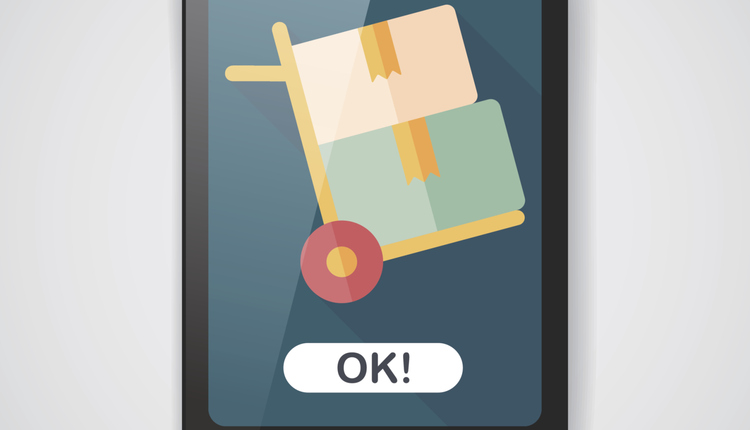I don't know about you, but I started scheduling meetings for 2012 back in November 2011! Along with Outlook and my desk calendar (used for lots of notes and reminders) I also have a color coded MS Word calendar that I carry around with me to help me remember the meetings I already have when asked to participate in yet another meeting (and then I have to decide which one takes priority).
Do you juggle meetings too? I'm sure you do! Not only do you have meetings for your work, you probably also have association and industry related meetings you attend that help you to do your job better. Are any of the meetings a clear waste of time? Do you have a meeting just because you've always had a meeting at that date/time; or, you haven't had the "team"â together for a while and think it might be a good idea?
Well, according to Industry Week, the cost of wasted time in unproductive meetings exceeds $37 billion each year! The formula they used was: Average hourly rate of participants (conservative cost for managers is $40/hour) times the number of people, times the length of the meeting. Sit back and calculate just one of your meeting costs. Does the answer surprise you? An article in USA Today from January 2001 reported that executives waste an average of 7.8 hours each week in unproductive meetings.
I'm sure that time could be better spent on other projects. How then, do you decide how to make your time spent in face-to-face meetings productive? First thing to do is decide if the meeting is necessary in the first place. A few questions an engineering consultant recommends you answer will help you decide:
· Is there a clear purpose for the meeting? Reading reports may not be a good purpose, but developing a plan of action to solving reported issues is appropriate.
· Do you need to meet now? If you do not have all the information you need, it would be better to reschedule.
· Is there an alternative to meeting? Communicating a status update may be more effective shared electronically, or on a phone call. Interactive messaging on a web event helps you avoid travel expense.
· What if you do NOT hold the meeting? If nothing would be missed, you may just have helped save your company some money and be the corporate hero!
Okay, so you've decided you have to meet in person. What can you do to make the meeting valuable?
You could reference U.S. Army Engineer, General Henry Robert's Robert's Rules of Order (first published in 1876) to maintain order in your meeting; for a more conversational meeting, here are the basics many experts agree on:
1. Start on time
2. Do NOT recap for late arrivals
3. Invite the right people
4. Prepare and distribute an agenda (outlining objectives) in advance
5. List agenda items in order of importance reflecting time targets
6. List who is responsible -- who owns the item
7. Keep the meeting on track (pages and pages of advice there or ask Robert)
8. Allow a process (like a "parking lot"âÂ) to add items to be considered later
9. Assign a scribe to capture minutes and next steps (distribute them ASAP)
Are there different guidelines for conference calls or Web meetings? A few:
· Understand that you will not receive visual cues (sleeping people or puzzlement)
· Use a phone in a quiet location with mute capability
· Introduce attendees (for small meetings/calls)
· Reduce background noise (drawers opening, conversations in the hall, papers shuffling)
The next time you are involved with a "boring"â non-productive meeting, I found a list of the top 20 time killer activities you can use (ask me and I'll send them to you). My favorite is called "Buzzword Bingo."â You create a five-by-five grid and write as many acronyms, or buzzwords generally used in your meetings in the boxes and hand out copies to other meeting participants. Cross off the word when you hear it used. The first person to cross out five in a straight line jumps up and shouts, "BINGO!"â You win the game, but probably not a lot of brownie points from the meeting leader!
Do you juggle meetings too? I'm sure you do! Not only do you have meetings for your work, you probably also have association and industry related meetings you attend that help you to do your job better. Are any of the meetings a clear waste of time? Do you have a meeting just because you've always had a meeting at that date/time; or, you haven't had the "team"â together for a while and think it might be a good idea?
Well, according to Industry Week, the cost of wasted time in unproductive meetings exceeds $37 billion each year! The formula they used was: Average hourly rate of participants (conservative cost for managers is $40/hour) times the number of people, times the length of the meeting. Sit back and calculate just one of your meeting costs. Does the answer surprise you? An article in USA Today from January 2001 reported that executives waste an average of 7.8 hours each week in unproductive meetings.
I'm sure that time could be better spent on other projects. How then, do you decide how to make your time spent in face-to-face meetings productive? First thing to do is decide if the meeting is necessary in the first place. A few questions an engineering consultant recommends you answer will help you decide:
· Is there a clear purpose for the meeting? Reading reports may not be a good purpose, but developing a plan of action to solving reported issues is appropriate.
· Do you need to meet now? If you do not have all the information you need, it would be better to reschedule.
· Is there an alternative to meeting? Communicating a status update may be more effective shared electronically, or on a phone call. Interactive messaging on a web event helps you avoid travel expense.
· What if you do NOT hold the meeting? If nothing would be missed, you may just have helped save your company some money and be the corporate hero!
Okay, so you've decided you have to meet in person. What can you do to make the meeting valuable?
You could reference U.S. Army Engineer, General Henry Robert's Robert's Rules of Order (first published in 1876) to maintain order in your meeting; for a more conversational meeting, here are the basics many experts agree on:
1. Start on time
2. Do NOT recap for late arrivals
3. Invite the right people
4. Prepare and distribute an agenda (outlining objectives) in advance
5. List agenda items in order of importance reflecting time targets
6. List who is responsible -- who owns the item
7. Keep the meeting on track (pages and pages of advice there or ask Robert)
8. Allow a process (like a "parking lot"âÂ) to add items to be considered later
9. Assign a scribe to capture minutes and next steps (distribute them ASAP)
Are there different guidelines for conference calls or Web meetings? A few:
· Understand that you will not receive visual cues (sleeping people or puzzlement)
· Use a phone in a quiet location with mute capability
· Introduce attendees (for small meetings/calls)
· Reduce background noise (drawers opening, conversations in the hall, papers shuffling)
The next time you are involved with a "boring"â non-productive meeting, I found a list of the top 20 time killer activities you can use (ask me and I'll send them to you). My favorite is called "Buzzword Bingo."â You create a five-by-five grid and write as many acronyms, or buzzwords generally used in your meetings in the boxes and hand out copies to other meeting participants. Cross off the word when you hear it used. The first person to cross out five in a straight line jumps up and shouts, "BINGO!"â You win the game, but probably not a lot of brownie points from the meeting leader!








